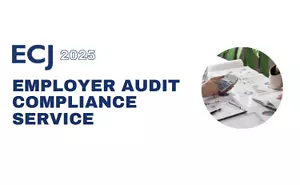Less than a year ago, the California Supreme Court in Ramirez v. Charter Communications, Inc. opined, in the context of employment arbitration agreements, that there is no bright line rule that requires a court to refuse enforcement if a contract has more than one unconscionable term. Rather, the appropriate inquiry is qualitative. “At the outset, a court should ask whether the central purpose of the contract is tainted with illegality. [Citations]. If so, the contract cannot be cured, and the court should refuse to enforce it.” This ruling gave lower courts the power to ...
The case of Parra Rodriguez v. Packers Sanitation Services LTD., LLC typifies the reason employers and employment counsel must stay on top of arbitration case developments.
The Second District Court of Appeals in California in Leeper v. Shipt, Inc. recently decided that all Private Attorney General Act (“PAGA”) actions necessarily have “individual” and “representative” components, regardless of whether individual claims are pleaded. This holding was significant because employers could then compel arbitration of the otherwise absent individual PAGA claims ...
The Private Attorneys General Act of 2004 (“PAGA”) was intended to allow employees to bring actions on behalf of the State of California against employers who failed to comply with Labor Code sections that were considered underenforced. This well-intentioned goal ultimately became a wrecking ball, tearing down California employers with an onerous penalty scheme that could cripple the average employer.
After a concerted effort to amend the PAGA statute last year via ballot initiative, the California Legislature compromised with California businesses and passed reforms
Since its enactment in 2019, Code of Civil Procedure 1281.98, which governs arbitration fee payments, has been inviolate: arbitrators do not have the unilateral power to extend the fee payment deadline; “checks in the mail” do not satisfy the 30-day payment deadline; there are no extensions based on the date or method by which the invoice was issued; and the Federal Arbitration Act (“FAA”) may not preempt the California Arbitration Act, or the statutory fee payment deadline.
Despite these rulings, employers and their counsel continue to search for some reprieve against ...
The Ending Forced Arbitration of Sexual Assault and Sexual Harassment Act of 2021 (the “Act”), a federal law, is unique for its role in overriding the policy in favor of the enforcement of arbitration agreements. The Act was legislated so that victims of sexual assault and harassment in the workplace would be entitled to their day in court, rather than behind the closed doors of a private arbitration, if that is what they prefer. As such, where the Federal Arbitration Act (“FAA”) applies, so too does the Act.
Recently, however, the California Court of Appeal was posed the ...
Readers of this blog are, by now, aware of California’s judicial and legislative hostility toward arbitration. Over the last few months, however, employers have seen a surprising number of appellate victories in their respective bids to enforce valid arbitration agreements with their employees. The recent opinion in Vo v. Technology Credit Union continues this recent trend.
Prior to Vo, it had been well-established that, absent an explicit reference to the California Arbitration Act (“CAA”) which includes provisions providing for discovery in arbitration, an ...
Q: I am a state court receiver for an LLC that owns a number of apartment buildings, which I am now managing. I have been sued by some tenants and a tenant group. They have not obtained receivership court permission to sue me, which I think is required. They contend that because their claims relate to my managing the business of the LLC they do not need prior permission to sue me and have cited 28 U.S.C. §959(a). Does this federal statute apply to me—a state court receiver?
A: No. 28 U.S.C. §959(a), which is an exception to the Barton Doctrine [Barton v. Barbour, 104 U.S. 126 (1881)], requiring ...
There is no greater threat to an employment arbitration than Code of Civil Procedure section 1281.98, which mandates that the party who drafted the arbitration agreement pay the fees and costs of the arbitration within 30 days after the due date. A failure to do so will result in a “material breach” of the arbitration agreement, which will entitle the non-drafting party (i.e., the employee) the right to withdraw from the arbitration and obtain onerous sanctions against the drafting party (i.e., employer). Employers have no room for error under this statute.
In every case prior to ...
Prior to the United States Supreme Court’s decision in Viking River Cruises Inc. v. Moriana, California courts did not consider the components of a Private Attorneys General Act (“PAGA”) claim. In the Viking River opinion, the Court delineated between a “representative PAGA claim” – referring to a PAGA claim based on violations that employees other than the plaintiff had suffered – and an “individual PAGA claim”, which referred to a portion of a PAGA action that is “based on code violations suffered by the plaintiff.” The California Supreme Court followed ...
Q: I am a state court receiver in a case that has been disrupted by a bankruptcy filing. The bankruptcy trustee has been threatening to sue me, in the bankruptcy court, for what she claims were negligent actions and to recover alleged preferential transfers. Doesn’t the trustee have to get prior permission from the state receivership court to be able to sue me?
A: Yes. The Barton Doctrine [ Barton v. Barbour, 104 U.S. 126 (1881) ] provides that a party seeking to sue a receiver must first obtain leave of the appointing court to do so and, absent such leave, no other court has jurisdiction to ...
Subscribe
Recent Posts
- To Sever or Not to Sever, That is the Question For Courts Reviewing Employment Arbitration Agreements for Enforceability | By: Jared W. Slater
- Another Day, Another Dispute Between Appellate Courts Over Employment Arbitrations | By: Jared W. Slater
- The Importance of Compliance Audits Under the Amended Private Attorneys General Act | By: Jared W. Slater
- An Attorney’s Inadvertence, Mistake, or Excusable Neglect Is Not Sufficient to Overcome The Bright-Line Rule for Arbitration Fee Payments | By: Jared W. Slater
- Sexual Harassment Claims Preclude Arbitration Even if the Federal Arbitration Act is Not Explicitly Invoked in an Arbitration Agreement | By: Jared W. Slater
- Court of Appeal Harmonizes Enforcement of Abritration Agreements with Arbitrator's Authorty | By: Jared W. Slater
- The Exception to the Barton Doctrine Contained in 28 U.S.C. §959(a) Does Not Apply to State Court Receivers | By: Peter A. Davidson
- Arbitration Fee Payment Statute Does Not Apply To Post-Dispute Arbitration Agreements | By: Jared W. Slater
- Every PAGA Action Has An Individual Component Which May Be Subject To Arbitration | By: Jared W. Slater
- The Ultra Vires Exception to the Barton Doctrine is Very Narrow | By: Peter A. Davidson
Blogs
Contributors
Archives
- April 2025
- March 2025
- February 2025
- January 2025
- December 2024
- November 2024
- October 2024
- September 2024
- August 2024
- July 2024
- June 2024
- May 2024
- April 2024
- March 2024
- February 2024
- January 2024
- December 2023
- November 2023
- October 2023
- September 2023
- August 2023
- July 2023
- June 2023
- May 2023
- April 2023
- March 2023
- February 2023
- January 2023
- December 2022
- November 2022
- October 2022
- September 2022
- August 2022
- July 2022
- June 2022
- May 2022
- April 2022
- March 2022
- February 2022
- January 2022
- December 2021
- November 2021
- October 2021
- September 2021
- August 2021
- July 2021
- June 2021
- May 2021
- April 2021
- March 2021
- February 2021
- January 2021
- December 2020
- November 2020
- October 2020
- September 2020
- August 2020
- July 2020
- June 2020
- May 2020
- April 2020
- March 2020
- February 2020
- January 2020
- December 2019
- November 2019
- October 2019
- September 2019
- August 2019
- July 2019
- June 2019
- May 2019
- March 2019
- February 2019
- January 2019
- November 2018
- October 2018
- September 2018
- August 2018
- July 2018
- June 2018
- May 2018
- April 2018
- February 2018
- January 2018
- December 2017
- November 2017
- October 2017
- September 2017
- August 2017
- July 2017
- June 2017
- May 2017
- April 2017
- March 2017
- February 2017
- January 2017
- December 2016
- November 2016
- October 2016
- September 2016
- August 2016
- July 2016
- June 2016
- May 2016
- April 2016
- January 2016
- December 2015
- November 2015
- October 2015
- September 2015
- August 2015
- July 2015
- June 2015
- May 2015
- April 2015
- March 2015
- February 2015
- January 2015
- December 2014
- November 2014
- October 2014
- September 2014
- August 2014
- July 2014
- June 2014
- May 2014
- April 2014
- March 2014
- February 2014
- January 2014









